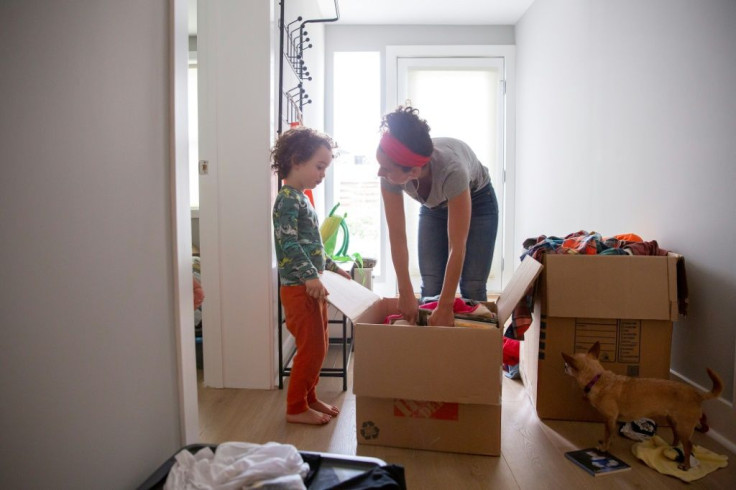Cities Like Sacramento, Jacksonville Benefitting From Pandemic-Fueled Urban Exodus, Survey Says
KEY POINTS
- People are leaving city centers in droves as COVID-19 makes remote work normal and shuts down many of cities' most attractive elements
- Smaller cities and outer suburbs with low costs of living have benefitted from the trend
- Among those bailing are younger workers and families tired of dealing with high costs
Pandemic lockdowns and remote work are fueling an exodus from urban cities, data from LinkedIn shows. A recent study indicates net arrivals to New York and San Francisco are down 20% from last year. Other cities like Seattle, Boston and Portland, Oregon, slipped 10%.
At the same time, smaller cities are getting bigger. Jacksonville, Florida, and Salt Lake City saw rates rise 10%, with Sacramento, Milwaukee and Kansas City, Missouri, rounding out the top five beneficiaries of the population shift.
Interviews with companies and individuals moving away from large cities present a common narrative: The pandemic has made physical workspaces unnecessary and shut down many of the elements city dwellers valued most.
“COVID-19 could end up being a blessing in disguise, perhaps easing some of the barriers that have historically made real estate in Salt Lake City a difficult, if desirable, acquisition for tech entrepreneurs,” said Emma Penrod, writing for Utah Business.
Robert Wood, CEO of a digital license plate company, told LinkedIn cheaper overhead and remote work drove his choice to leave San Francisco.
“We don’t need to be in Silicon Valley,” he said.
Sacramento real estate agent Kellee Davis said most home buyers he meets "are moving into town from other places because Sacramento gives them the best bang for their buck."
"In the Bay Area, the size, quality and land that comes with properties don’t come close to what they can get for moving just an hour and a half away," Davis added in an interview with the Sacramento Bee.
Mike Estes, a real estate agent in Nashville, Tenn., said the decoupling of work from geography gives the edge to smaller towns that have culture to offer but fewer corporate headquarters.
"More and more people are moving into Nashville from out of state, especially California, Chicago and the Northeast," he said. "A lot of the recent movement is driven by jobs. Now that more people are able to work from home due to COVID, some people are deciding to work virtually from Nashville because they love all the area has to offer."

People were already leaving California due to the high cost of living, professional mover Bobby Burke said. But the pandemic turned that trickle to a flood, broadening the demographics of those leaving.
"I'm getting people in their 20s who've lost their jobs and are moving back to their parents. I'm getting families with small children who are tired of California's high cost of living,” he told LinkedIn, “They can work from home now – which means anywhere. And I'm getting people in their 40s, especially if they have elderly parents back east who need help."
Even within metropolitan areas, people are relocating to outer suburbs. James Hughes, a New Jersey real estate agent, told the New York Times that 60% of his customers were from New York City, with “insane” demand in recent weeks.
An ABC analysis of post office change of address forms found a 256% increase in the rate of people leaving New York City’s five boroughs in March compared to the previous year. Longer measurements aren’t quite as extreme, with the total number of people leaving over five months just under double what it was last year. Still, more than 246,000 people leaving has some residents worried.
Mayor Bill de Blasio felt a press conference was warranted, telling reporters: “The vast majority of people who were here in February are still here. Relatively few people went anywhere, a lot of those people will be back.”
Many in the comments of LinkedIn's article, on both sides of the divide, celebrated the flexibility a dynamic housing market offered.
"I’m thinking of moving back to NYC after 20 years in the suburbs because of the exodus. My daughter just moved to Brooklyn and it may be a good time to buy due to the exodus and falling prices. The city feels great with less congestion and when you head to the countryside, the Trump signs give pause to the idea, 'Get me out of here'. In NYC, especially Brooklyn, the BLM signs, on the other hand, calm my nerves and make me feel connected to the community. I love the countryside, but ...," LinkedIn member Melissa Chepuruout said.
Added member Michael Rodgers: "Moved home and out of the Bay Area temporarily while working from home. Greatest decision ever, paying $2,000+ per month to essentially live in a closet with this much uncertainty regarding return to the office is insane. Markets such as New York and the Bay Area have been in need of a reset for decades due to landlords steadily hiking up rent across the board year after year. This is the reckoning that they deserve to be honest."
© Copyright IBTimes 2025. All rights reserved.





















